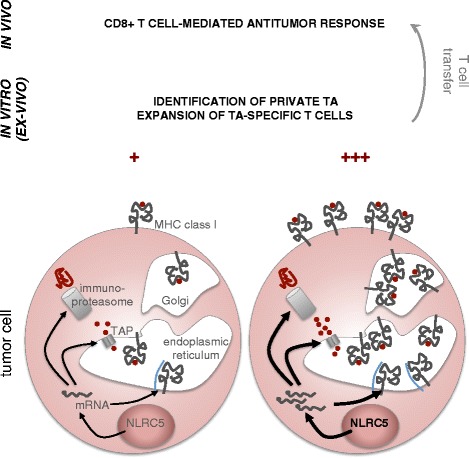Fig. 1.

Potential applications of NLRC5 in immunotherapy. NLRC5 is a specific transactivator of MHC class I and a subset of APM genes. An increase or recovery of NLRC5 expression in tumor cells could therefore improve tumor antigen (TA) presentation and boost the CD8+ T cell-mediated antitumor response. Manipulation of NLRC5 expression could be envisaged in vitro/ex vivo and/or directly in patients. In vitro, and anyway in the case of irreversible mutations, gene transfer strategies might be considered. Alternatively, type I IFN is known to raise NLRC5 expression. These approaches will facilitate identification of private TAs by mass spectrometric analysis and expansion of TA-specific T cell clones in the perspective of transfer therapies. In addition, type I IFN could be administrated to patients, possibly in combination with chemotherapy, radiations, or checkpoint inhibitors, in order to increase tumor immunogenicity and improve the overall therapeutic benefit
